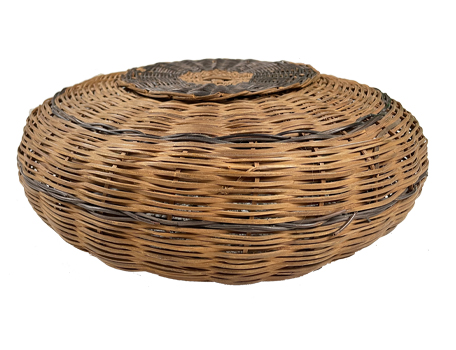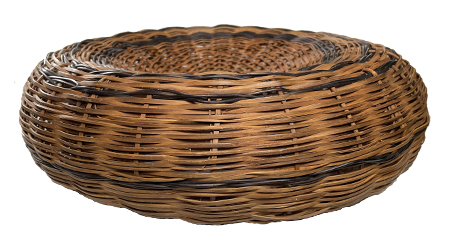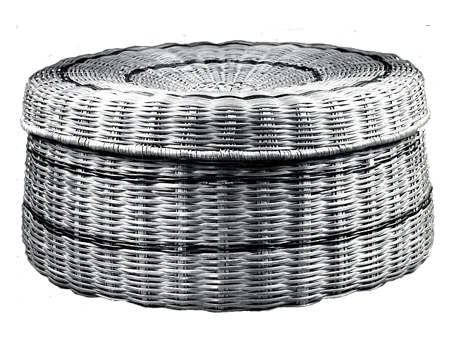|
Rattan Basket
|
|
Rattan is a vine-like product that grows to great length and can measure up to two inches in diameter. It is fashioned into thin splines used for both baskets and furniture. A wicker weave is typically a weave of splines ("weft") over sets of spokes, in an over / under fashion. The splines are pliable, while the spokes ("warp") remain rigid. |

|
Fiber_007100
Lidded Basket possibly Kpelle or Kimbuzi peoples, Liberia; palm fiber (rattan); 4 3/4 in. h x 13 in. dia. (12 x 33 cm); collected 1934-1935 by Walter Logan Fry; collection of William Logan Fry |
|
The spokes in the Fry basket above are single spokes, augmented with two additional spokes for reinforcement at the top, near the opening. A thin, unsliced vine is used around the circumference of the basket in the middle and at the top. It is the principle spline in the lid. It may take its color from indigo dye. The bottom of the basket is deeply concave. |

|
Lidded Basket
Bottom View |
|
Compare with the lidded
basket in the collection of the Metropolitan Museum of
Art, below. Note especially the similarity of the
concave surface of the bottom of the Fry basket, and the
concave surface at the top of the basket at The Met.
Both baskets seem to be made by the same hand, but are
probably the result of the passage of basket-making
technique from one maker to the next.
|

|
Lidded Basket
Kpelle or Kimbuzi peoples, Liberia; palm fiber (rattan); H 6 in. (15.24 cm); collected 1923-1930 by Rev. Frederick H. and Nettie Bloch; Gift of Richard Bloch; The Metropolitan Museum of Art; Accession Number: 1989.217.8a, b |